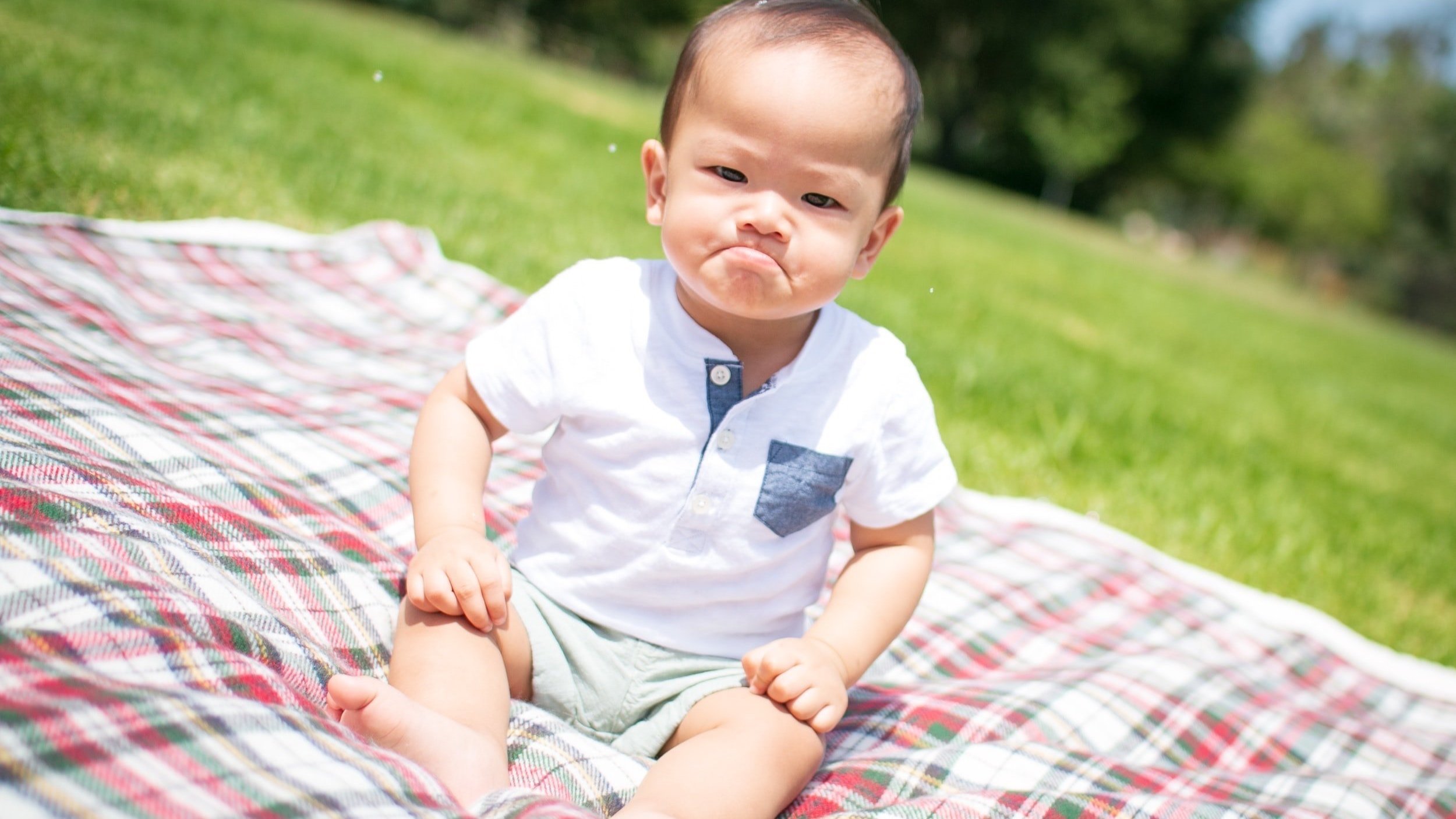Arrange your face
This baby demonstrates facial expression at its least subtle.
Most of your facial muscles exist only to display your emotions to the world.
The myocardial muscle in your heart is there to make it beat, your external intercostals are there so you can breathe, and most muscles keep you upright and moving around. Somehow it’s strange to think about the muscles of facial expression just hanging out there, waiting to let the world know how you feel.
Without a heartbeat, without breath, and collapsed in a pile on the floor, we would clearly die. Is it self-indulgent, then, of our faces to dedicate so many muscles to mere self-expression? Clearly, they wouldn’t bother if this was the case.
They’re certainly useful to authors. How many times have you read as the main character sets her mouth into a cold, hard line, or narrows her eyes menacingly? Often these exaggerated descriptions are absurd. Nobody is this crass and blatant with their facial expression. Why would they be? They’ve got tens of muscles to make sure they retain some facial subtlety.
Better authors work with this. Hilary Mantel’s Oliver Cromwell punctuates his internal monologue with the incredibly powerful refrain, ‘arrange your face’. The unreadable neutrality of Cromwell’s facial expression is fundamental to his political machinations. Mantel understood that how we use our faces has a crucial role in our social and professional success.
Brilliant actors learn fine motor control of each facial muscle and study facial expression closely, allowing them to convey subtleties beyond the reach of words or tone of voice. It means they can potentially say one thing to their co-star, whilst letting the audience see subtexts flicker across their face. It’s the opposite of Mantel’s Cromwell’s studied neutrality - their faces are alive with meaning, contradiction, confusion, and all the other things it means to be human.
Netflix’s brilliant Babies documentary shows how babies fixate on faces from an unfathomably early stage, and from slightly older will freak out if their parents don’t pull the expressions they expect of them. Facial expression is imperative to young children’s safety - if they can’t read the emotions of the adults they’re depending on, they may not be able to communicate their needs effectively, which is a matter of survival. As we get older, we can meet more of our own needs but being able to read emotions and convey our own nonetheless is crucial to our success and ability to thrive.
The muscles of facial expression, then, really are crucial to our survival. They help to create our identities to others, and help us to gain a sense of who we are safe around and how we should behave in situations. Far from self-indulgent, they are vital to our very identities. And without those, how can we operate in the world at all?

